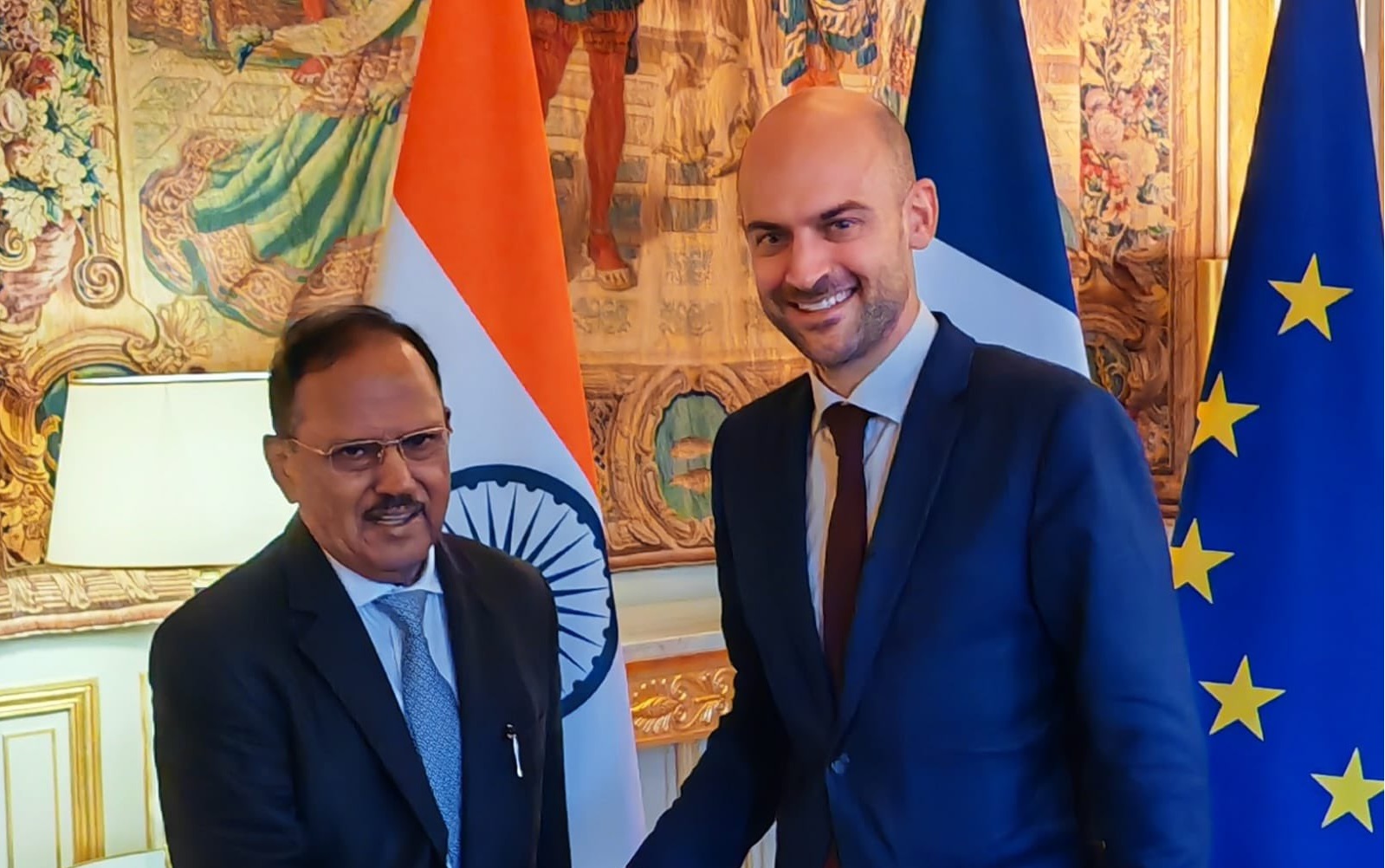French defense conglomerate Safran Group has indicated to India’s National Security Advisor Ajit Doval that it is willing to establish its first Defence Electronics unit outside of France in India, indicating that the two countries’ strategic relationship is strengthening.
During a two-day strategic dialogue (September 30 and October 1) between Doval and French President Emmanuel Macron’s diplomatic advisor, Emmanuel Bonne, and his chief military advisor, Fabien Mandon, France agreed to collaborate with India on advanced materials and metallurgy, which is critical for manufacturing critical parts of military and civilian engines.
They stated that in order for India to absorb cutting-edge technology, the Indian industry must be knowledgeable about advanced metallurgy for forging and casting key parts of aircraft engines.
During the discussion, Safran revealed plans to establish a defence electronics facility in India to manufacture sensors and critical electronics parts required to support military platforms.
Dassault Aviation SA, the French aircraft manufacturer, has already purchased land in Jevar, Uttar Pradesh, to build a full-fledged maintenance, overhaul, and repair facility for Rafale fighters and civilian aircraft.
France has also decided to collaborate with India on the development of unmanned subsurface, surface, and aerial systems, as well as underwater drones for submarines, in addition to assisting India in the development of counter-swarm drone and armed drone technologies.
During the conversation, the two sides discussed sensitive security issues ranging from cyber security to military applications in space, such as joint satellite launches and the co-development and manufacture of stand-off weapons like the Hammer missile.
The highlight of Doval’s visit to France was an hour-long meeting with Macron, during which the Ukraine war and Israel’s war on Lebanon were discussed. While NSA Doval provided his assessment of the Ukraine conflict, French Foreign Minister Jean Noel Barrot provided his assessment of the situation in West Asia hours after returning from Beirut.
The consensus was that Israel would likely continue land operations against Hezbollah in Lebanon in order to militarily degrade the Shia terrorist group while also attempting to support a moderate government in the conflict-torn country.
According to the sources, the two sides also discussed openly the global security situation, including China’s posture in the Indo-Pacific.
